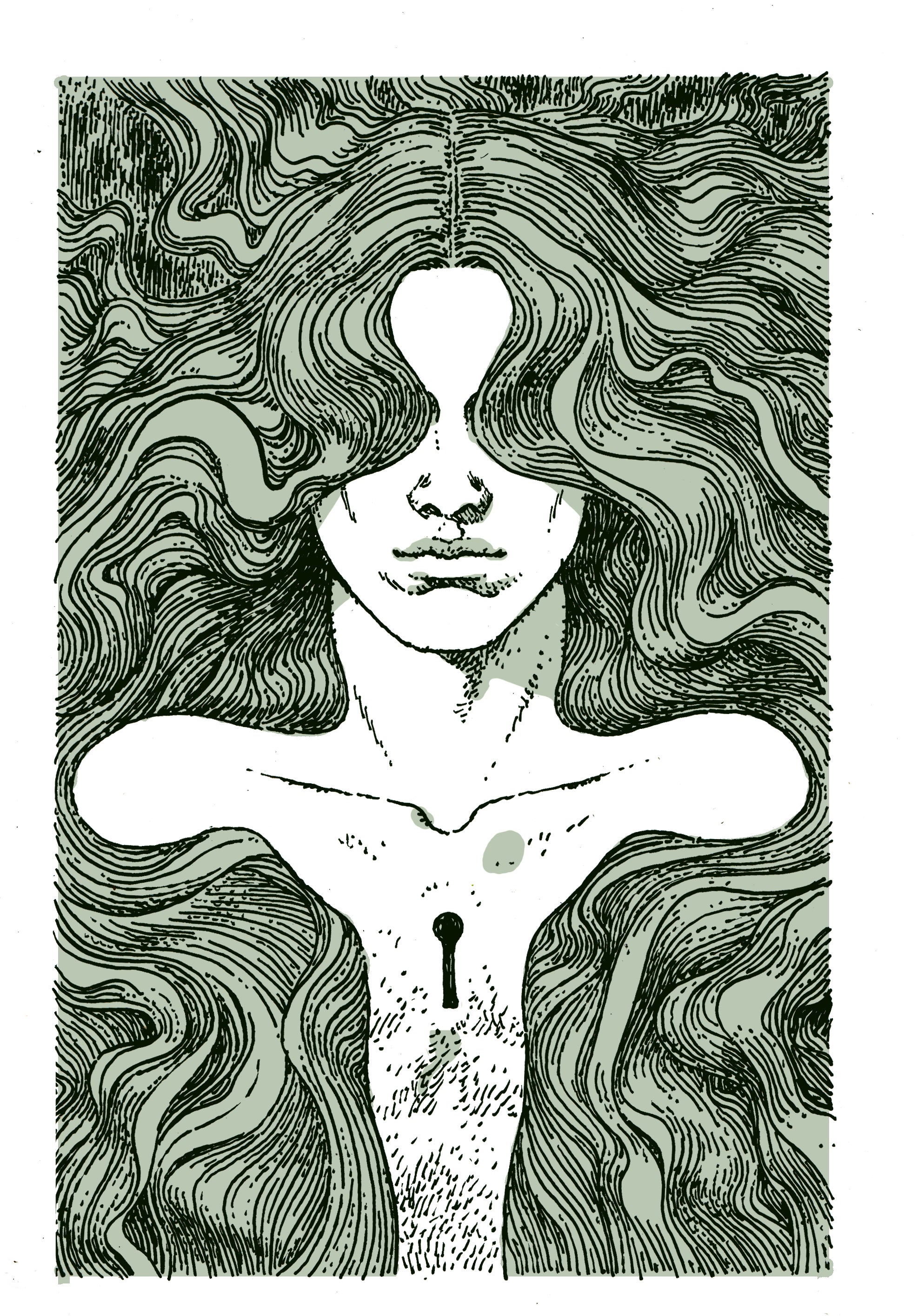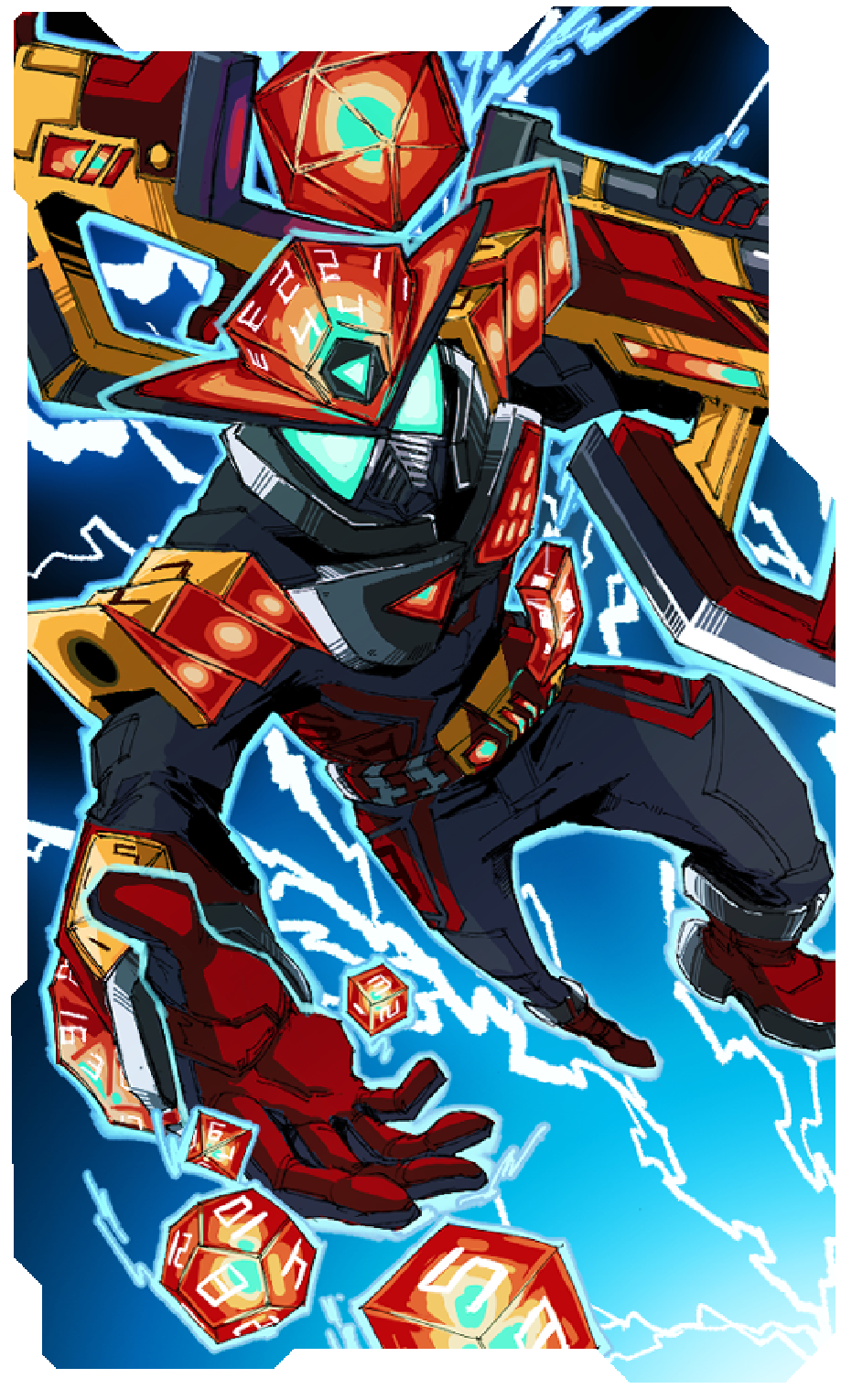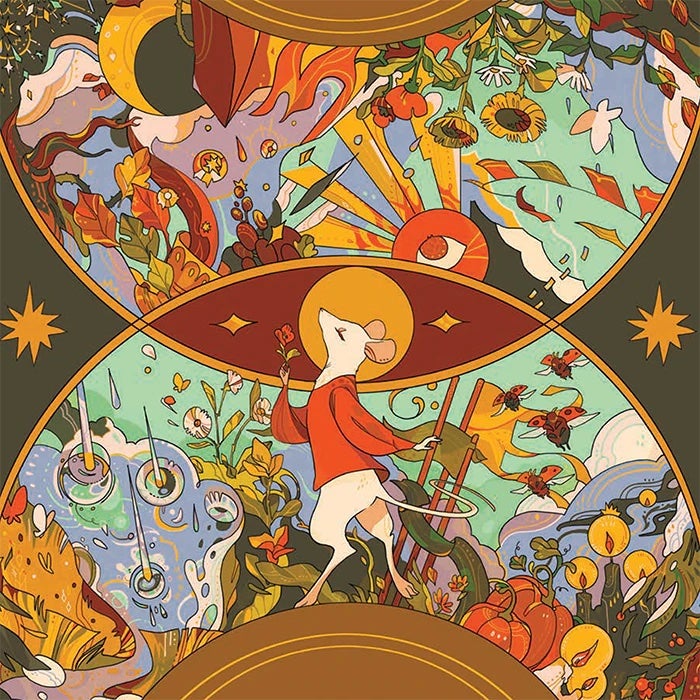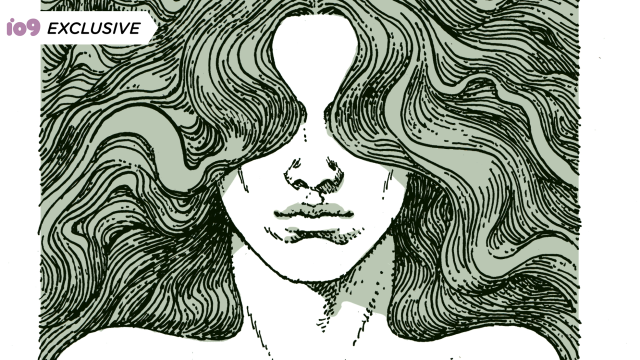As massive crowdfunding campaigns for tabletop role playing games (TTRPG) dominate the games ecosystem, independent designers and presses are adapting the centuries-old tradition of arts grants and patronage in order to raise up small, often marginalised, authors and artists.
When many crowdfunding campaigns rely on early investment to create buzz and confidence, smaller creators are often left in the lurch. But TTRPG designers and presses are hoping to change that by creating community-built pathways into the hobby.
“The indie TTRPG space is a rare place where your money goes a relatively long way in affecting what you see in the market,” says game designer Lex Kim Bobrow.
Since massive IPs like Dungeons & Dragons drive a majority of sales in the TTRPG market, less established properties can struggle to find an audience when they’re starting out. So indie publishers are working to create a more inclusive and strategic investing strategy to uplift TTRPG creators, and to encourage the growth of their own communities on services like Discord and at in-person conventions.
One such designer is Tyler Crumrine, founder of Possible Worlds Games. Crumrine exclusively revealed to Gizmodo that PWG is launching a new creative exchange program, giving a grant to an author and an artist so that they can collaborate in order to create new TTRPGs. The program is called the Forethought Initiative, and the inaugural residents are comics artist Linnea Sterte and author Renee Gladman.
Sterte’s debut, the 2017 breakthrough title Stages of Rot, was nominated for an Eisner for best graphic album, and won the MoCCA Arts Festival Award of excellence. Her sophomore release A Frog in the Fall raised over $US160,000 ($222,112) through a crowdfunding campaign. Gladman is an artist and author of 13 published works, including a cycle of novels about the city-state Ravicka and its inhabitants, and a 2021 Windham-Campbell Prize winner in fiction. Jeff VanderMeer, an award-winning science fiction author, has praised Gladman’s work, calling it “More Kafka than Kafka… [an] achievement that ranks alongside any of Borges’ in its creation of a fantastical landscape with deep psychological impact.”
Over the next 10 months, from May 2022 to March 2023, Sterte and Gladman will alternate sending pages of art and writing to each other each month, providing the other with inspiration for their work and creating a wholly unique setting. As the authors create new art and fiction, Crumrine will design a new tabletop roleplaying game in that world; at the end of the process, the residents will have final approval of that game, as well as the right to use any of the material generated in their own projects and portfolio.

Crumrine’s approach is the result of years of work to help create and support accessible mentorship and financing for for emerging artists. One of the earliest contemporary examples is Avery Alder’s Emerging Designers mentorship program, which had its first cohort announcement in 2018. Alder’s work includes games such as The Quiet Year, Monsterhearts, and Dream Askew, which helped establish and popularise the Belonging Outside Belonging system.
The Gauntlet ran another early program, providing small, no-interest loans to designers who were crowdfunding Trophy RPG supplements. This later expanded to Brindlewood Bay supplements. Jason Cordova, who administered the loans, said in an email that “the ZQ2 program was particularly successful because the ‘little Trophys,’ as I call them, got a big boost from the Trophy Kickstarter, and vice versa — they really fed into each other nicely.”
Chris Bissette and Alicia Furness, designers who crowdfunded 1920s Brindlewood Bay hack The Unquiet Dark, told Gizmodo that the loan “meant that we could get some stuff in place ahead of the Kickstarter, which gave us a better chance of funding overall because — like it or not — people respond to art. We only just funded and didn’t hit any stretch goals, and I think if we hadn’t had that cash to get the initial art done the project would have likely failed.”
Jackson Adams, an emerging game designer, also benefited from the loan program. “I don’t think Beakwood Bay would have happened if it weren’t for the grant,” he said in an email. “For a first-time indie creator, someone who couldn’t depend on my name, past releases, or a large social-media following, I didn’t think I could risk creating something without placing myself in a financial risk I just wasn’t sure about. However, that grant, and the support of Jason and the Gauntlet community, led my game to be funded on its first day, something I genuinely couldn’t have imagined happening.”
Conventions have long offered grants and scholarships to marginalised people who might not have the means to attend their events, which are considered crucial networking opportunities. This year, Big Bad Con is administering 100 grants for $US300 ($416) each to designers of marginalised backgrounds, including first time designers, to support the production of a browser-based story game via Story Synth, a free platform for designing and sharing TTRPGs online. Applications remain open until all the grants have been awarded.
Randy Lubin, Story Synth founder, told Gizmodo in an email that “My hope is that these microgrants will enable a new wave of designers to make and share their games, which will then be quickly playable by the entire TTRPG community. The microgrants are for designers of marginalised identities and empowering diverse designers will lead to more games that address a broader array of themes, topics, perspectives, mechanics, and more.”
Sean Nitter, who runs Big Bad Con, also said in an email that “Big Bad Con’s mission is to provide an inclusive place to grow the gaming community, and to support and uplift marginalised voices within it… Our goal with the StorySynth microgrants is to help 100 creators share their love and inspiration with others by taking their games from concept to publication on a digital platform with minimal barriers to entry.”

These one-off grants do a lot of good, but creators also need a way to make games creation sustainable and worth their time and investment. To that end, they’re also developing mutual aid programs and co-op game design groups in their own communities, like Discord or Twitter, where users find similar themes and values in each other’s work and trade skills to help produce, market, and benefit from TTRPGs created therein.
Mutual RPGs (currently operating under Plus One Forward) is a mutual aid fund which grew out of Plus One Experience, started by Tony Vasinda. It started when Plus One invested in a print run for Laurie O’Connel’s Heironymous and a formal playtest packet for Cloven Pine’s Autumn Triduum. When Zinequest, a Kickstarter marketing push for TTRPG zines crowdfunding on the platform, got pushed back at the last minute (from February 2022 to August 2022), Plus One gathered support from their community to offer funding for other projects. “Other folks offered editing help and support. I realised this was no longer just about Plus One helping print games,” Vasinda told Gizmodo in an email. “It was about creators helping to support each other through mutual aid.”
“The feedback we had always gotten from folks when we had offered funding was strong support, but also a desire to see it be more of a community of support rather than just a financial exchange,” he said. “We looked at a lot of projects this year for Mutual RPGs and… Samuel Mui’s Lumen Ryder was at the top of our list. Sam is an amazing creator and Lumen Ryder was a great concept built on a system that a lot of members of our team love!”
Mutual RPGs was able to support Lumen Ryder through marketing efforts and has acquired an editor for the project. It also plans to fund a physical print run of the book later this year, in addition to providing distribution. All of these things — editors, printing, distribution — can be intimidating for small-time creators, and by creating a co-op to support small TTRPG endeavours, more creators have a higher chance of succeeding in an often insular and niche market.
With so many games funding on crowdfunding platforms, there is more room to include grants and mutual funds within the stretch goals of a campaign. Sandy Pug Games (which was featured in Gizmodo’s Gaming Shelf in April) launched its Ald-Amura Historical Society Grant as a direct result of receiving an overwhelming amount of money from its Monster Care Squad crowdfunding campaign.
“The team decided that some of this wealth should go back into the community that raised us on their backs,” explains Liam Ginty, the founder of Sandy Pug Games. “The grant offered up to $US300 ($416) per person for the creation of a Monster Care Squad-based ‘thing.’ Initially we earmarked $US3000 ($4,165) and assumed we’d pick ten lucky folks, but the money kept coming in and the people were asking for way less than we’d thought, and we expanded that out to around 35 projects by the end [of the campaigns].”
A lot of third-party content was created as a result of this grant program, and Ginty notes that JN Butler accepted a commission, and “made one of the hardest pieces of Monster Care Squad artwork, then joined our crew off the back of it.” This established “a friendship and working relationship I value significantly more than that initial investment.” That community-backed funding helped more connections get established, and build a larger, inclusive, accessible community.
The Ald-Amura Historical Society Grant inspired Jay Dragon and Ruby Lavin, co-founders of Possum Creek Games, to make their own program. “We started the Haeth Grant while following in the footsteps of Sandy Pug Games,” Dragon said in an email, “and we developed it with the intent of strengthening small or upcoming creators interested in systems that don’t necessarily have the audience numbers to compete with stuff like the DM’s Guild.”
Dragon says the grant supported more than 40 creators as they pursued projects related to Wanderhome, Possum Creek’s lauded animal-folk travelog game. The grant funded third-party products including “new playbooks, expansions, a soundtrack, illustrations, play tools, even a limited run of berry wine,” said Dragon. “It’s helped a lot of smaller designers and artists who don’t necessarily have the time or audience for a traditional crowdfunding project get their first chance to practice with having to work with a budget and working with others.”
According to Dragon, the Haeth Grant has become the bedrock on which the fan community has been built. With financial support and increased accessibility, Wanderhome accrued a thriving fan community, creating opportunities for many who might not have been otherwise able to access TTRPG publishing.

Other designers are working on similar projects. Lex Kim Bobrow is running a game design jam (a timed, community-focused event, primarily hosted on itch.io) around the Caltrop Core SRD, and offering $US50 ($69) minigrants to queer BIPOC who want to create a game during the event. Even though Bobrow isn’t supported by a press or a co-op, they’re focused on building a community and creating access within their means. There’s also initiatives like the Layout Level-Up itch bundle. One of the barriers to TTRPG design is graphic design, and the Layout Level-Up bundle funds software purchases for those who would not be able to afford it otherwise.
Jackson Adams, who released Beakwood Bay with the support of a no-interest loan, says these programs are a critical lifeline for creators. “I really can’t speak enough about how [monetary] investment, in a first-time creator who just had a pitch and some passion, meant so much to me and to my faith that I could create something for other people,” he said.
“When you see community-funded games like Wanderhome and Thirsty Sword Lesbians becoming pillars of the scene, it lets marginalised groups (who have historically been particularly gatekept from TTRPGs) know, ‘oh not only are people like me welcome here, the things I want to make also might find a meaningful audience,” Adams says. “The things I want to say matter, and the things I want to play are worth creating’.”
Want more Gizmodo news? Check out when to expect the latest Marvel and Star Wars releases, what’s next for the DC Universe on film and TV, and everything you need to know about House of the Dragon and Lord of the Rings: The Rings of Power.
Editor’s Note: Release dates within this article are based in the U.S., but will be updated with local Australian dates as soon as we know more.
